Exploring the world of monk characters in stories and games like 'Dungeons & Dragons' opens up a fascinating world of names deeply rooted in cultures and languages across the globe. From names inspired by the four elements to those that reflect the life and teachings of a priest, the right monk name can bring a character to life.
Whether you're writing a novel, developing a game, or simply dreaming up a story, selecting from these interesting names for your monk characters will add depth and authenticity. Monk names can portray the essence of peace and strength, hope, and wisdom, making them perfect for characters as complex as they are wise.
Each monk's name carries a unique vibe and history, often linked to the culture of the monk's origin. These names not only define the character's identity but also enrich the narrative, giving each monk a distinct presence that can influence their interactions, decisions, and relationships within the story.
Buddhist Dharma Names
 Shutterstock
ShutterstockA Buddhist name or 'Dharma' name is a traditional title given to a new monk, and each Buddhist sect has its variations of the same. These serene and zen monks' names are ideal for any spiritual character.
1. Abhaya (Sanskrit origin): means 'fearless'.
2. Aishi (Japanese origin): is a great name meaning 'love' and 'affection'.
3. Anzan (Hindi origin): means 'Buddhist' and 'quiet mountain'.
4. Bankei (Japanese origin): means 'ten thousand blessings.'
5. Bodhin (Sanskrit origin): means 'awakening or to 'seek' or 'know.'
6. Chen (Chinese origin): means 'dawn' or 'morning'.
7. Dae Shim (Korean origin): means 'the great one' or 'shining'.
8. Daiki (Japanese origin): means 'big, shining', or 'child who shines brightly'.
9. Danan (Buddhist origin): means 'one who is very giving.'
10. Eisho (Japanese origin): means 'aware', 'sentimental', and 'noble'.
11. Fudoki (Japanese origin): means 'immovable' and 'unmoving wisdom'.
12. Ji Bong (Korean origin): means 'mythical bird'.
13. Kaizen (Japanese origin): is a popular name, which means 'good change' or 'change for the better'.
14. Kasyapa (Sanskrit origin): means 'tortoise' and 'deer'. It is also the name of a celebrated Hindu sage and the name of one of the eight primary gotras (clans) of the Brahmins.
15. Ryotan (Japanese origin): means 'clear' and 'refreshing'.
16. Shikai (Japanese origin): means 'when your mind is cloudy like this, you cannot judge right'.
17. Soten (Japanese origin): means 'heavenly ancestor.'
18. Tengen (Japanese origin): means 'heavenly energy.'
19. Zoho (Japanese origin): means 'hidden treasure.'
20. Zuiki (Japanese origin): means 'fortunate' and 'happy'.
Cool Monk Names

This next list includes some powerful monk names. These are ideal for Pandaren warriors who love nature and combat. This section has listed down some famous monk names for your reference.
21. A-wut (Chinese origin): means 'weapon'.
22. Banzan (Sanskrit origin): means 'indestructible mountain'.
23. Channarong (Thai origin): is a great Pandaren name meaning 'fight to win' or 'experienced warrior'.
24. Feng (Chinese origin): means 'sharp blade,' 'wind,' or 'summit'.
25. Gansukh (Mongolian origin): means 'steel axe'.
26. Indazita (Burmese origin): means 'the king of gods who conquers bravely'.
27. Jayasurya (Sanskrit origin): means 'victorious sun'.
28. Kraisee (Thai origin): is a name that means 'one who is brave like a lion.' It embodies the strength and bravery of the ancient guardian lions, known as Singha, who flank the entrances of Thai temples.
29. Longwei (Chinese origin): means 'a dragon's greatness'.
30. Phurba (Bhutani origin): means 'religious dagger' and is a weapon used in rituals by Buddhist masters.
31. Shaolin (Chinese origin): means 'Mount Shaolin' and is a famous warrior that originated with medieval monks in martial arts.
32. Syaoran (Chinese origin): means 'little wolf'.
33. Taki (Japanese origin): means 'plunging waterfall'.
34. Wang Lei (Chinese origin): means 'thunder king'.
35. Youta (Japanese origin): means 'sun' or 'sunlight'.
Female Monk Names
 Shutterstock
ShutterstockMost of the time, the word 'monk' refers to both male and female ascetics; however, in Buddhism, the term for a female monk is 'bhikkhuni', 'bhiksuni', or 'monachos'. In English, this translates to 'nun.' The following are some wonderful naming options for female monks.
36. Amanthi (Sinhala origin): means 'protector of peace'.
37. Cahya (Indonesian origin): means 'one who brings light to the darkness'.
38. Chomdem (Tibetan origin): means 'she who overcomes the negative'.
39. Fuji (Japanese origin): means 'prosperous or flourishing'.
40. Goldeheve (Yiddish origin): means 'one with a sixth sense and high awareness of self'.
41. Gutoku Shinran (Japanese origin): is derived from the name of the Japanese monk who founded the Jodo Shinshu sect in Japan. The name means 'stubble-haired foolish one'.
42. Hyma (Burmese origin): means 'forest'.
43. Kokoro (Japanese origin): means 'heart', 'mind', and 'spirit'.
44. Losang Samten (Tibetan origin): is a Tibetan-American scholar and monk. The name means 'a fine mind'.
45. Opame (Burmese origin): means 'infinite light'.
46. Penden (Burmese origin): is a great name for a female Pandaren and means 'lotus throne'.
47. Sanoh (Thai origin): means 'a pleasant sound'.
48. Sarvajna (Sanskrit origin): means 'the all-knowing one' and refers to an Indian monk and philosopher.
49. Somdej Toh (Thai origin): was one of the most famous Thai ascetics. The name means 'abbot'. It also has the same meaning as the 'Sir' prefix.
50. Sunstra (Thai origin): means 'beautiful eyes'.
51. Tenzin Gyatso (Tibetan origin): is the 14th Dalai Lama. The name means 'upholder of teachings'.
52. Tenzin Zopa (Tibetan origin): means 'the holder of Buddha Dharma'. It's the name given to a well-known Nepalese monk and teacher of the Mahayana tradition.
53. Tora (Japanese origin): means 'tigress' or 'goddess of thunder'.
54. Tripurari (Sanskrit origin): is the name of the American poet, guru, and religious leader. The name means 'the destroyer of the three cities'.
 Shutterstock
Shutterstock55. Wang Jing (Chinese origin): means 'clear essence' or 'gentle spirit'.
56. Yadana (Pali origin): means 'gemstone'.
57. Zeya (Burmese origin): means 'success'.
58. Amaravati (Indian origin): means 'abode of immortals'.
59. Bhrikuti (Nepali origin): means 'frowning goddess', referring to a historical figure revered in Tibetan Buddhism.
60. Chandani (Sanskrit origin): means 'moonlight'.
61. Dawa (Tibetan origin): means 'moon' or 'lunar'.
62. Eshana (Sanskrit origin): means 'desire' or 'search'.
63. Fiora (Italian origin): means 'flower', symbolizing purity and devotion.
64. Gita (Sanskrit origin): means 'song' or 'poem', referring to the sacred text 'Bhagavad Gita'.
65. Hana (Japanese origin): means 'flower', symbolizing beauty and enlightenment.
66. Hakuin (Japanese origin): means 'white cloud'.
67. Indira (Sanskrit origin): means 'beauty' or 'splendid', also the name of a Hindu goddess.
68. Jyoti (Sanskrit origin): means 'light' or 'flame', symbolizing guidance and knowledge.
69. Kalyani (Sanskrit origin) means 'auspicious' or 'beautiful'.
70. Lhamo (Tibetan origin) means 'goddess', often used to refer to female deities in Tibetan Buddhism.
71. Mira (Sanskrit origin) means 'ocean' or 'sea', also associated with the devotional poet Mirabai.
FAQs
What are some interesting names for a monk character inspired by the four elements?
For a monk character inspired by the four elements, consider names like Anila (Sanskrit for 'air'), Agni (Sanskrit for 'fire'), Jala (Sanskrit for 'water'), and Dhara (Sanskrit for 'earth'). These names connect the monk's spiritual essence to elemental forces, enhancing the character's depth in stories or games.
How do I choose a monk name that reflects a panda monk’s personality?
When choosing a monk name for a panda monk, consider names that reflect traits associated with pandas such as peace, strength, or gentle nature.
Names like Ping (Chinese for 'peaceful'), Bao (Chinese for 'treasure'), or Shifu (from the character in 'Kung Fu Panda' who embodies wisdom and strength) are excellent choices.
What should I consider when picking a monk name that conveys hope and friendship?
To convey hope and friendship through a monk's name, opt for names with meanings that reflect these qualities. Asha (Sanskrit for 'hope'), Maitri (Sanskrit for 'friendship'), and Nadia (Slavic for 'hope') are fitting choices that can inspire the person bearing them, as well as their friends and companions.
Can you suggest a monk name suitable for a character who is also a priest?
For a monk character who also serves as a priest, consider names that denote wisdom and spiritual guidance. Chanan (Hebrew for 'God was compassionate'), Padma (Sanskrit for 'lotus', a symbol of divine beauty and purity), and Cohen (Hebrew for 'priest') resonate with the roles of both a monk and a priest.
How can a monk's name influence the life portrayed in a role-playing game?
A monk's name can significantly influence the portrayal of a character's life in a role-playing game by adding depth and background to the character's persona.
Choosing a name like Bodhi (Sanskrit for 'awakened'), which suggests enlightenment, can guide the development of the monk character’s journey and interactions within the game.
What considerations should I make when selecting a monk name for a game character?
When selecting a monk name for a game character, consider the character’s backstory, abilities, and the role they play in the game. A name should reflect their personality traits, spiritual alignment, and the type of monk they are, whether a warrior monk, a healer, or a scholarly monk.
Are there specific monk names that are considered more powerful or lucky in certain cultures?
Yes, certain monk names are considered powerful or lucky in various cultures. For example, in Tibetan culture, names like Lobsang (meaning 'kind-hearted') are revered, while in Japanese Zen, names like Hakuin (meaning 'white cloud') are admired for their spiritual connotations.
What are the origins and meanings of traditional Japanese monk names?
Traditional Japanese monk names often derive from Buddhist concepts, natural elements, or virtues. Names like Sora (meaning 'sky'), Ren (meaning 'lotus', symbolizing purity and enlightenment), and Kyo (meaning 'cooperation' or 'village', reflecting community and harmony) are common. These names are deeply rooted in the spiritual and cultural practices of Japan.
How do monk names vary across different cultures?
Monk names differ greatly between cultures, showing the unique spiritual and cultural backgrounds of each area. For instance, Tibetan monks typically have names that show spiritual qualities, while Japanese monks often have names related to nature or Zen teachings. This variety of names underlines the rich cultural diversity within the worldwide Buddhist community.
Choosing the right monk name is more than just picking a label; it's about encapsulating the essence of the character’s spirit and journey. Whether it’s for a game like 'Dungeons & Dragons', a novel, or even a screenplay, the perfect monk name can profoundly impact the narrative and the audience's connection to the character.
Remember, each name holds a story, waiting to be told through your creative vision. Let these names inspire you to build characters as profound and complex as the names themselves.
Related Articles Around the Web


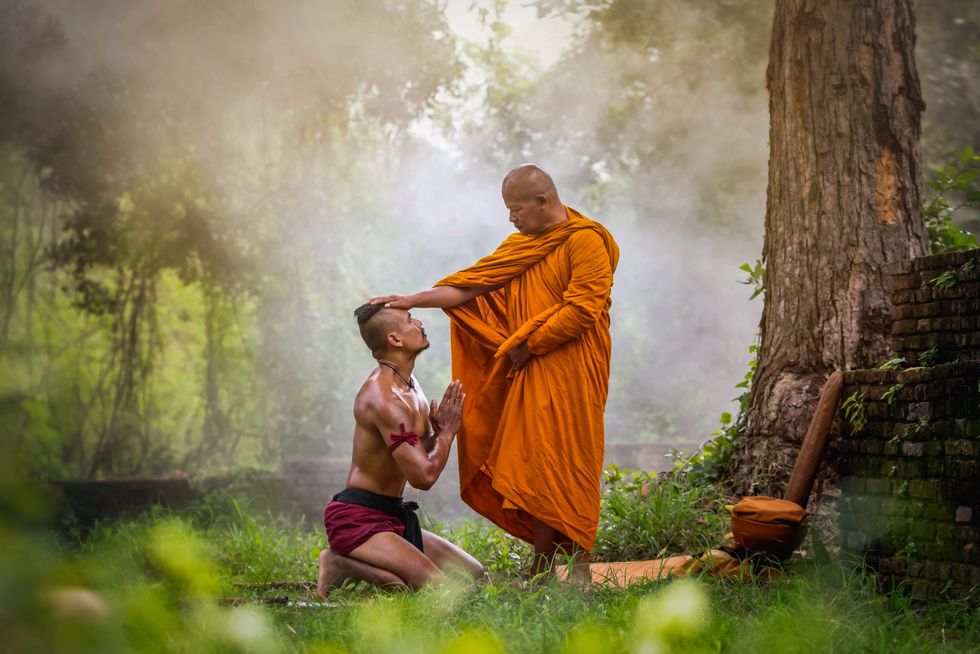

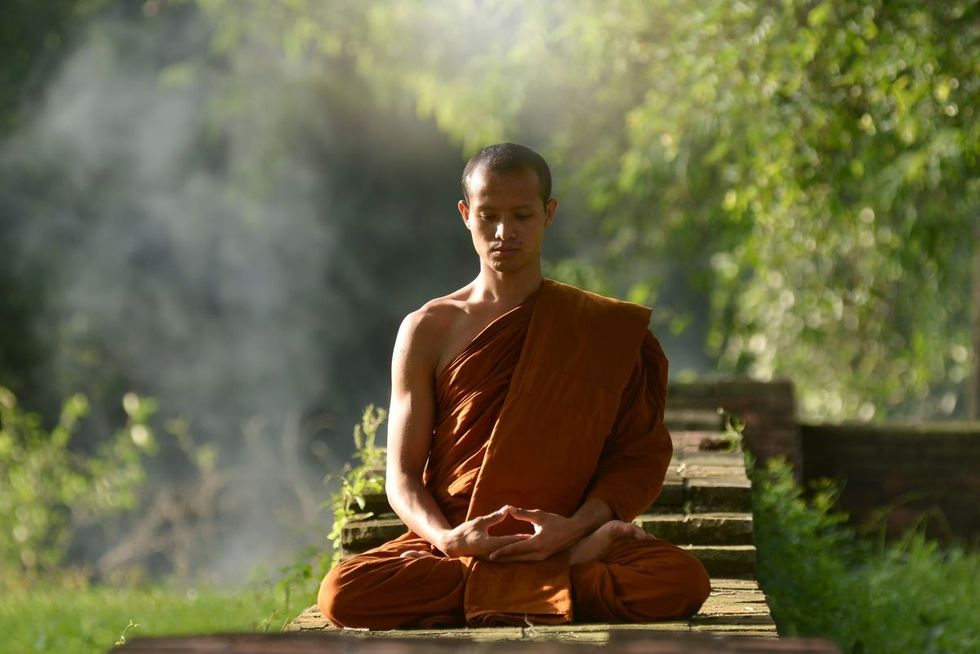 Shutterstock
Shutterstock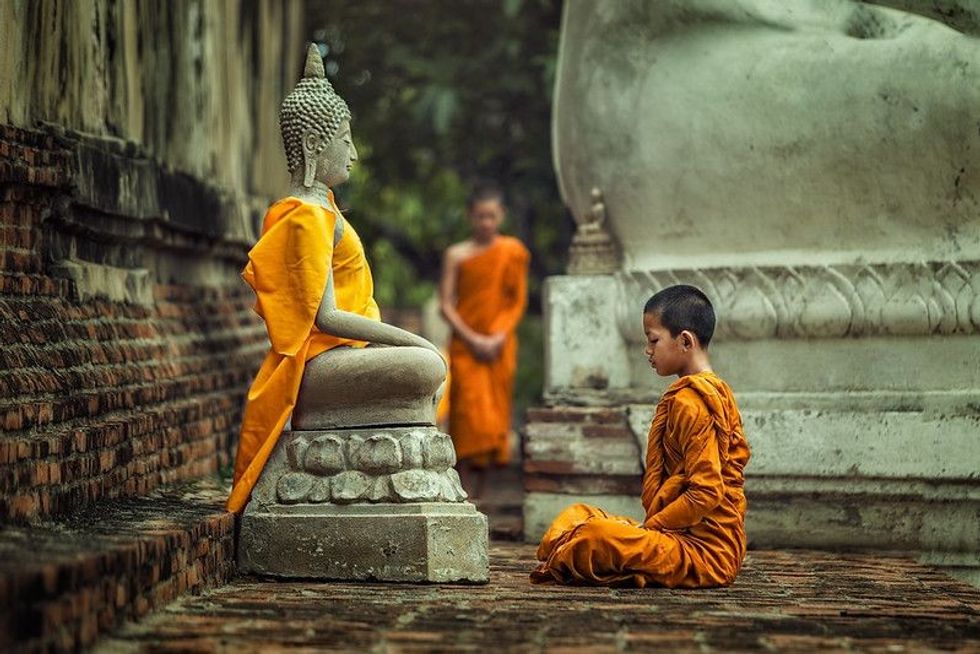
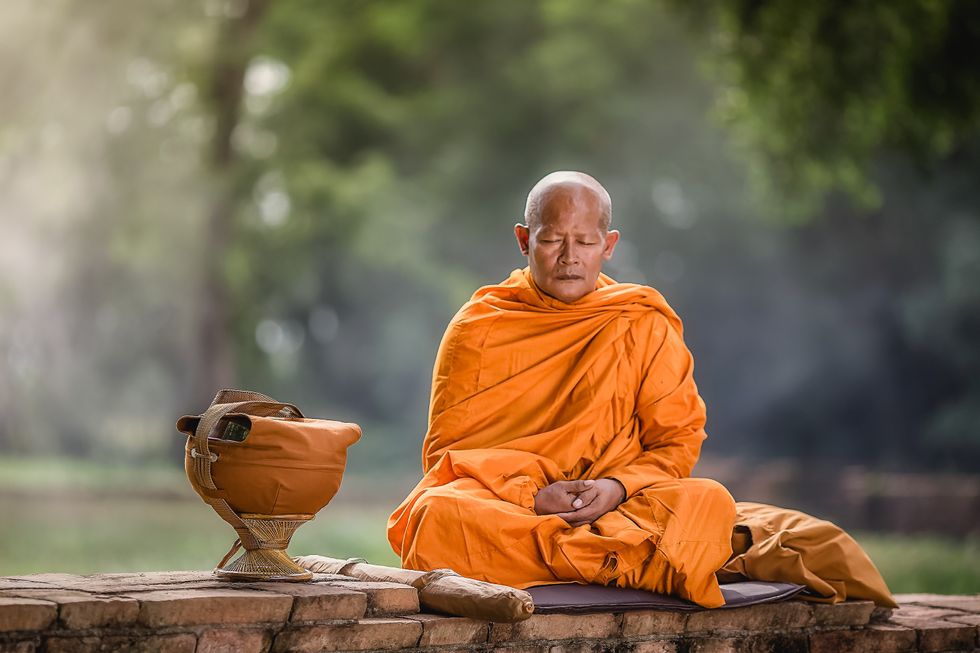 Shutterstock
Shutterstock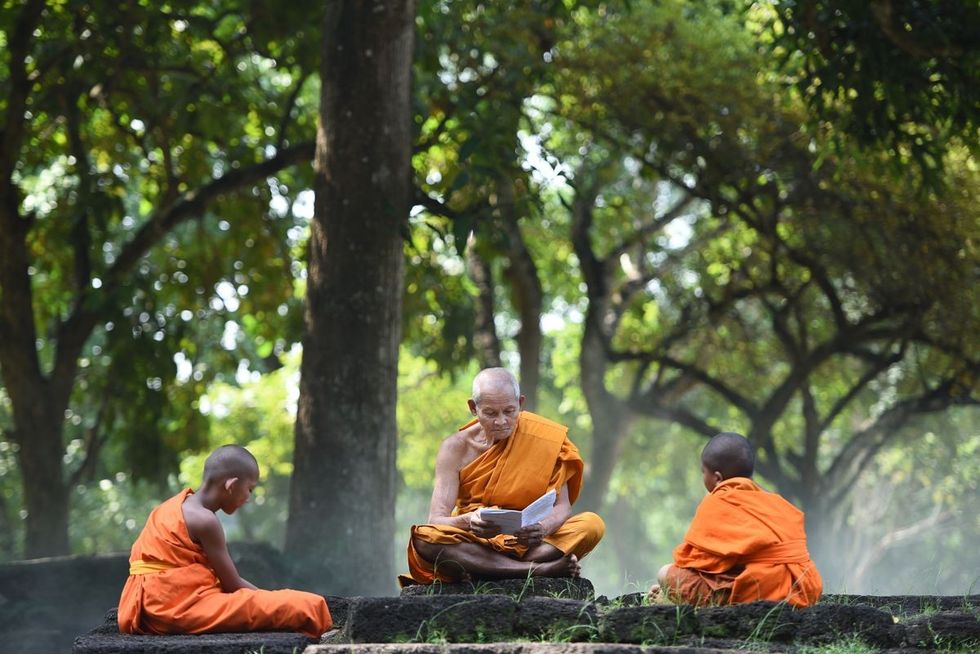 Shutterstock
Shutterstock




